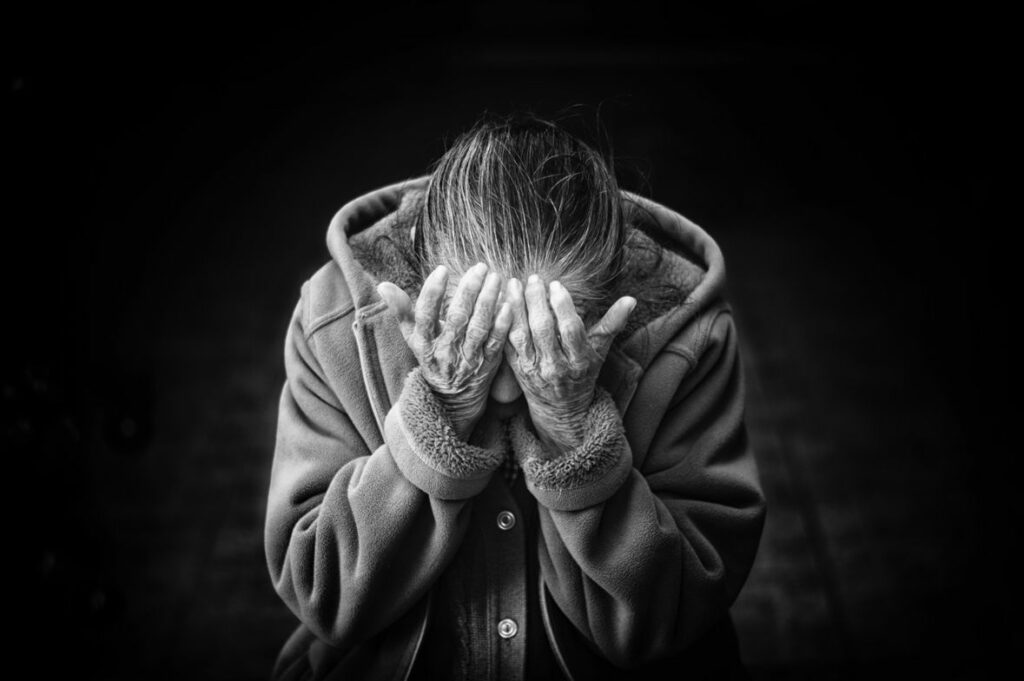What is Dementia?
This factsheet explains what dementia is, including the causes and symptoms, and how it is diagnosed and treated. It also looks at some of the different types of dementia.
The word dementia describes a set of symptoms that may include memory loss and difficulties with thinking, problem-solving or language. These changes are often small to start with, but for someone with dementia, they have become severe enough to affect daily life. A person with dementia may also experience changes in their mood or behaviour.
Dementia is caused when the brain is damaged by diseases, such as Alzheimer’s disease or a series of strokes. Alzheimer’s disease is the most common cause of dementia but not all dementia is due to Alzheimer’s. The specific symptoms that someone with dementia experiences will depend on the parts of the brain that are damaged and the disease that is causing dementia.
Symptoms of Dementia
Each person is unique and will experience dementia in their own way. The different types of dementia tend to affect people differently, especially in the early stages. How others respond to the person, and how supportive or enabling the person’s surroundings are, also greatly affect how well someone can live with dementia.
A person with dementia will have cognitive symptoms (problems with thinking or memory). They will often have problems with some of the following:
- day-to-day memory – difficulty recalling events that happened recently
- concentrating, planning or organising – difficulties making decisions, solving problems or carrying out a sequence of tasks (eg cooking a meal)
- language – difficulties following a conversation or finding the right word for something
- visuospatial skills – problems judging distances (eg on stairs) and seeing objects in three dimensions
- orientation – losing track of the day or date, or becoming confused about where they are.
As well as these cognitive symptoms, a person with dementia will often have changes in their mood. For example, they may become frustrated or irritable, withdrawn, anxious, easily upset or unusually sad.
With some types of dementia, the person may see things that are not really there (visual hallucinations) or believe things that are not true (delusions).

Dementia is progressive, which means the symptoms gradually get worse over time. How quickly dementia progresses varies greatly from person to person.
As dementia progresses, the person may develop behaviours that seem unusual or out of character. These behaviours may include repetitive questioning, pacing, disturbed sleep patterns or agitation. They can be distressing or challenging for the person and their carer.
A person with dementia, especially in the later stages, may have physical symptoms such as muscle weakness or weight loss. Changes in sleep patterns and appetite are also common.
What Causes Dementia?
There are many diseases that result in dementia. The most common types of dementia are outlined below:
Alzheimer’s disease
This is the most common cause of dementia. Brain cells are surrounded by an abnormal protein and their internal structure is also damaged. In time, chemical connections between brain cells are lost and some cells die. Problems with day-to-day memory are often noticed first, but other symptoms may include difficulties with finding the right words, solving problems, making decisions, or perceiving things in three dimensions.
Vascular dementia
If the oxygen supply to the brain is reduced because of the narrowing or blockage of blood vessels, some brain cells become damaged or die. This causes vascular dementia. The symptoms can occur either suddenly following one large stroke, or over time through a series of small strokes or damage to small blood vessels deep in the brain. The symptoms of vascular dementia vary and may overlap with those of Alzheimer’s disease. Many people have difficulties with problem-solving or planning, thinking quickly and concentrating. They may also have short periods when they get very confused.
Mixed dementia
This is when someone has more than one type of dementia and a mixture of symptoms. It is common for someone to have Alzheimer’s disease and vascular dementia together.
Dementia with Lewy bodies
This type of dementia involves tiny abnormal structures (Lewy bodies) developing inside brain cells. They disrupt the brain’s chemistry and lead to the death of brain cells. Early symptoms can include fluctuating alertness, difficulties with judging distances and hallucinations. Day-to-day memory is usually affected less than in early Alzheimer’s disease. Dementia with Lewy bodies is closely related to Parkinson’s disease and often has some of the same symptoms, including difficulty with movement.
Frontotemporal dementia (including Pick’s disease)
In frontotemporal dementia, the front and side parts of the brain are damaged over time when clumps of abnormal proteins form inside nerve cells, causing them to die. At first, changes in personality and behaviour may be the most obvious signs. Depending on where the damage is, the person may have difficulties with fluent speech or may forget the meaning of words or objects.
The symptoms of these types of dementia are often different in the early stages but become more similar in the later stages. This is because more of the brain becomes affected as the different diseases progress.
In the later stages of dementia, the person will need more and more support to carry out everyday tasks. However, many people with dementia maintain their independence and live well for years after their diagnosis. Information, advice and support are available for the person and their carer to help them live well with dementia.
Rarer Causes of Dementia
There are many other diseases that can lead to dementia. These are rare: together they account for only about five per cent of all dementia. They tend to be more common among younger people with dementia (under the age of 65).
These rarer causes include alcohol-related brain damage (including Korsakoff’s syndrome), corticobasal degeneration, progressive supranuclear palsy, HIV infection, Niemann-Pick.
Some people with Parkinson’s disease or Huntington’s disease develop dementia as the illness gets worse. People with Down’s syndrome are also at a particular risk of developing Alzheimer’s disease as they get older.
Mild Cognitive Impairment
Some people have problems with their memory or thinking but these are not severe enough to interfere with everyday life. In this case, a doctor may diagnose mild cognitive impairment (MCI). Research shows that people with MCI have an increased risk of developing dementia; about 10-15 per cent of this group will develop dementia each year.
However, MCI can also be caused by other conditions such as anxiety, depression, physical illness and side effects of medication. Because of this, some people with MCI do not go on to develop dementia, and a small number of people will even get better.
Who gets dementia?
There are around 800,000 people in the UK with dementia, The dementia statics hub predicts that one in 3 people born in 2023 will late go on to be diagnosed with Dementia.
It mainly affects people over the age of 65 (one in 14 people in this age group have dementia), and the likelihood of developing dementia increases significantly with age. However, it can affect younger people: there are at least 17,000 people in the UK who developed dementia before they were 65. It is likely that this figure has been underestimated and the real number may be up to three times higher. Dementia can affect men and women.
Scientists are investigating the ways dementia might run in the family. In a very small number of people, certain types of dementia are inherited as a single gene that causes the disease, usually before age 65. A much larger number of people will inherit a combination of genes that increases or decreases their risk of developing dementia in much less direct ways.
How can I tell if I have dementia?

Becoming a bit more forgetful does not necessarily mean that you have dementia. Many people notice that their memory becomes a bit less reliable as they get older – for example they might forget someone’s name. Memory loss can also be a sign of stress, depression or certain physical illnesses.
However, anyone who is worried that their memory is getting noticeably worse, or who has other symptoms such as those listed above, should discuss their concerns with the GP.
Diagnosing dementia
It is very important to get a proper assessment of problems with memory or thinking. They may be caused by a treatable condition such as depression or an infection, rather than If the cause is dementia, a diagnosis has many benefits. It provides someone with an explanation for their symptoms, gives access to treatment, advice and support, and allows them to prepare for the future and plan ahead. Knowing the type of dementia (eg Alzheimer’s disease, vascular dementia) may allow appropriate drug treatments to be offered.
Dementia will usually be diagnosed by a specialist doctor such as a psychiatrist (a mental health specialist), a geriatrician (a doctor specialising in the physical health of older people) or a neurologist (someone who concentrates on diseases of the nervous system).
What is the difference between Alzheimer’s dementia?
Dementia is the term used to describe a decline in cognitive function, including memory loss, difficulty with language, problem-solving, and other cognitive abilities. It is a broad term that encompasses a range of conditions, including Alzheimer’s disease.
Alzheimer’s disease is a specific type of dementia that is characterized by a gradual decline in cognitive function, including memory loss, language problems, and impaired reasoning. Alzheimer’s disease is caused by the buildup of proteins in the brain that interfere with the communication between brain cells.
Occasionally a GP or specialist nurse will make the diagnosis, depending on their expertise There is no single test for dementia. A diagnosis is based on a combination of things:
- taking a ‘history’ – by the doctor talking to the person and someone who knows them well about how their problems developed and how they are now affecting their daily life
- cognitive tests of mental abilities (eg memory, thinking) – simpler tests will be carried out by a nurse or doctor, more specialist tests by a psychologist
- physical examination and tests (eg blood tests) – to exclude other possible causes of the symptoms
- a scan of the brain – if this is needed to make the diagnosis.
A common pattern is for the GP to make an initial assessment and then refer the person to a memory clinic or other specialist service for a more detailed assessment. A specialist doctor will have more expertise in dementia and will be able to arrange more detailed tests and brain scans if needed. The diagnosis should be communicated clearly to the person and usually also to those closest to them, along with a discussion about the next steps.
How is Dementia Treated?
The vast majority of causes of dementia cannot be cured, although research is continuing into developing drugs, vaccines and other medical treatments. There is also a lot that can be done to enable someone with dementia to live well with the condition. Care and support should be ‘person-centred’, valuing the person as a unique individual.
Non-Drug Treatments and Support

A range of support, therapies and activities that don’t require medication can help someone to live well with dementia. The GP, memory service or local Alzheimer’s Society should be able to advise on what is available.
Support for the person and their carer after a diagnosis should give them a chance to talk things over with a specialist, ask questions about the diagnosis, and think about the future. Information should be given on where to get help if needed in the future and how to stay physically and mentally well.
Talking therapies, such as counselling, can help someone come to terms with their diagnosis. Another treatment called cognitive behavioural therapy (CBT) may be offered to help with depression or anxiety. Music Therapy has been found to be a beneficial therapy, playing music to dementia patients will often inspire a strong emotional reaction, particularly if it is a song from their youth – from their wedding perhaps, or a song they used to sing with their children.
Cognitive rehabilitation can enable an individual to retain mental skills and raise their confidence. There is also lot that can be done at home to help someone with dementia remain independent and live well with memory loss. Support ranges from devices such as pill boxes or calendar clocks to practical tips on how to develop routines or break tasks into simpler steps.
Activities that help to keep the mind active, such as cognitive stimulation, are popular. As the condition progresses, many people with dementia enjoy reminiscence and life story work (in which the person is encouraged to share their life experiences and memories). Such activities It is vital that people with dementia stay as active as they can – physically, mentally and socially. Everyone needs meaningful activities that they enjoy doing and which bring confidence and self-esteem.
Drug Treatments for Dementia
There are drugs that can help to improve the symptoms of dementia or that, in some cases, may stop them from progressing for a while.
A person with mild to moderate Alzheimer’s disease or mixed dementia may be prescribed donepezil (often known by the brand name Aricept), rivastigmine (eg Exelon) or galantamine (eg Reminyl). These may temporarily relieve memory problems and improve alertness, level of interest and daily living. In the moderate or severe stages of Alzheimer’s disease someone may be offered memantine (eg Ebixa). This may help with mental abilities and daily living, Donepezil, rivastigmine and galantamine can be helpful for someone with dementia with Lewy bodies who has distressing hallucinations or delusions, or who has behaviours that challenge.
For a person with vascular dementia, drugs will be offered to treat the underlying conditions. These conditions often include high blood pressure, high cholesterol, diabetes or heart problems. Controlling these may help slow the progression of dementia.
A wide range of other drugs may be prescribed at different times for a person with dementia. These include drugs for depression or anxiety, sleeping tablets or antipsychotics. Note that some of these drugs can have severe side effects. Not all are recommended for all types of dementia. Health professionals will generally advise that a non-drug approach is tried first before prescribing medication.
Can Dementia Be Prevented?
It is not usually possible to say for sure why a particular person has developed dementia. It is known that high blood pressure, lack of physical exercise and smoking – all of which lead to the narrowing of the arteries – increase the risk of developing Alzheimer’s disease and vascular dementia. There is evidence that a healthy lifestyle, especially in mid-life, can help reduce the risk of dementia. Regular physical exercise (eg cycling, brisk walking), maintaining a healthy weight, not smoking, and drinking only in moderation are all linked to a reduced risk of dementia.
It is important that conditions such as diabetes, heart problems, high blood pressure and high cholesterol are all kept under control. Getting depression treated early is also important.
A balanced diet may help to reduce risk. A balanced diet is one which is low in saturated fat, does not have too much salt, dairy or meat, and includes plenty of fish and fresh fruit. All these healthy lifestyle choices will also reduce the risk of other serious conditions such as stroke, heart disease and cancer.
It also seems that keeping socially and mentally active in the later years may help lower the risk of dementia. Being socially active could include visiting friends or going to a place of worship, while being mentally active could include doing puzzles or reading.
Contact Details
For further information on how we can help with homecare for your loved one with Dementia please contact us using the free click to call button, or send an email through the form on our Contact Us page.


